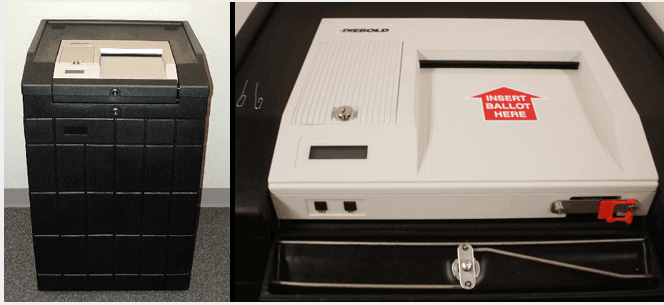On March 9, the House Election Law Committee held an exec session for some bills dealing with vote-counting machines. These bills are HB-1064, HB-1163, HB-1247, and HB-1470.
House Election Law Committee Chair Barbra Griffin had held these bills to the last minute so that the SB2 towns that had warrant articles to quit using machines to count votes would not be affected by the committee results.
All four will be on the calendar for the March 15, 2022, House session.
I will discuss these bills one at a time.
First, HB-1064 would require that all ballots be paper ballots and that only hand-counting would be allowed; no computers, scanners, or other electronic devices would be permitted to count votes. The public hearing was on January 13 and a large crowd of more than one hundred people attending necessitated moving the hearing to Rep’s Hall.
The exec session was on March 9 where the committee voted 20-0 to ITL the bill and place it on the consent calendar. If this bill were to pass, then the other three bills would become moot.
We want to thank Alvin See for this Op-Ed. If you have an Op-Ed or LTE
you would like us to consider, please submit it to Editor@GraniteGrok.com.
HB-1163 (last year’s HB-491) would require that any ballot that an electronic ballot counting device be programmed to return a ballot if it detects an overvote.
Originally, the in-person voter would be offered an opportunity to correct such a ballot. An amendment provides that the election official instruct the voter to place the ballot in the auxiliary compartment on the side of the machine to be hand-counted after the polls close. Absentee ballots with a detected overvote would also be placed in the auxiliary compartment by the election official handling the ballot.
The amendment eliminates the concern of creating two classes of voters: those who can repair a ballot and those that cannot (absentee voters).
This bill completely eliminates machine-counted overvotes by segregating all ballots with machine-detected overvotes for hand-counting. Then all machines will report zero overvotes.
The public hearing was on February 23 and the exec session was on March 9 where the committee voted 19-1 to OTP the bill and place it on the consent calendar. This bill will make a big difference by eliminating the machine-caused overvote problem and there is no additional cost to program the machines.
If a voter actually overvotes on the ballot, it will be reviewed by human eyes to confirm. It will not affect any other potential issues with the machines, so recounts are the best way to check machine behavior. This is a very good bill and should be passed even if HB-1064 passes.
HB-1247 would require that any folded ballot (all absentee ballots) be hand-counted. This is a bit of a brute force way of trying to reduce the number of machine-counted overvotes. Not as precise as HB-1163 and won’t stop machine-counted overvotes from in-person voters. The public hearing was on February 23 and the exec session was on March 9 where the committee voted 13-7 to ITL the bill after voting 9-11 on an OTP motion. It is on the regular calendar. HB-1163 is a better bill for this.
HB-1470 would require all ballot-counting machines to be programmed to report the number of overvotes for each office or question on the ballot. This should have been done since we started using the AccuVote machines to help understand which locations on the ballot are more susceptible to overvotes, especially folds. If HB-1163 passes, then this bill is not needed. There is an incorrect statement in the Committee Report: “This bill proposes that all ballot counting devices show the number of overvotes for each race on the ballot. While this might be useful information, the vote-counting device will only produce a total count for overvotes, and will not delineate by race.” The bill was to have the machines programmed to show overvotes for each race which some other states do. A public hearing was on January 20 and an exec session on March 9 where the committee voted 20-0 to ITL the bill and place it on the consent calendar.
It will be interesting to see if the new ImageCast vote-counting machine that Milford is testing this year will be prone to finding non-existent overvotes or other irregularities. This was authorized by the Ballot Law Commission last October.
